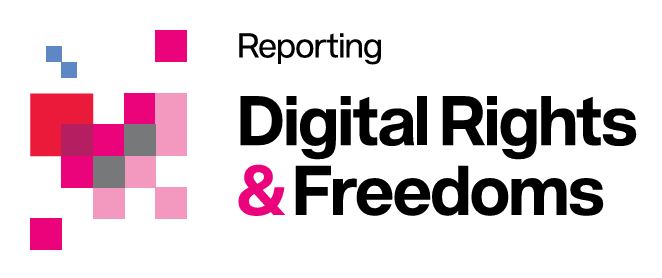AI in Journalism: Time to Create Ethical Guidelines for Media in Bosnia and Herzegovina

AI in Journalism: Time to Create Ethical Guidelines for Media in Bosnia and Herzegovina
“Authored” journalistic articles written by AI: guidelines, education, and transparency are needed
Illustration: Said Selmanović
The Reporters without Borders Charter on the use of artificial intelligence in the media emphasizes the importance of respecting fundamental journalistic principles such as transparency, impartiality, truthfulness, and privacy protection. In Bosnia and Herzegovina, there are still no clear guidelines for the ethical use of AI in the media, nor is there an established legal framework or regulatory provisions governing this domain.
Borka Rudić, Secretary General of the BH Journalists Association, says she was taken aback by rumours that some journalists are significantly using generative artificial intelligence in their work, producing numerous articles for different media outlets while presenting them as their own original work.
The Media.ba editorial team received an “authored” article from a contributor that contained parts written by ChatGPT. This was detected due to the writing style, use of generic data, words that were uncharacteristic of the author’s usual tone, and a lack of sources supporting the claims presented.
Maja Radević, journalist for Slobodna Bosna, says she was shocked to learn that some journalists write entire articles using ChatGPT. Belonging to an older generation of journalists, she considers this unprofessional and contrary to all norms of journalistic ethics.
“When ChatGPT first appeared, we were all fascinated by this AI system, so we tested it and asked it some current questions to see how it would respond. I remember, for example, that at the time, the academic qualifications of former KCUS Director Sebija Izetbegović were a hot topic in BiH. Out of curiosity, my colleague Almir Panjeta and I asked ChatGPT, 'Does Sebija Izetbegović have a diploma?' We got a response saying she is a well-known Bosnian actress”, Radević recalls.
Adnan Bajrović, Deputy Executive Editor of Oslobođenje.ba, also notes that ChatGPT initially arrived as a novelty or a toy.
“We used it for fun prompts to write poems, jokes, or illustrate what Sarajevo would look like in the future. Only after some time did we realize that it could be used not only to spread disinformation, but also to introduce a plurality of perspectives that could be harnessed within ethically grounded journalism”, says Bajrović.
Although some analyses indicate that generative AI is used only sporadically in journalism in BiH, the editor of Inforadar.ba, Adis Šušnjar, claims its use is widespread—from content generation to report writing and image production.
In his newsroom, AI is used to analyse various documents, verify data, and suggest headlines for articles when needed.
“AI offers recommendations that can inspire new ideas, but in almost every case, these recommendations require refinement, restructuring, and adaptation to the story’s content, context, and the current social environment”, Šušnjar explains.
He believes that AI should be used solely as a tool to increase efficiency and save time, with journalists always verifying the accuracy of AI-generated content.
Lack of Transparency and Copyright Infringement
Semir Mujkić, editor at BIRN BiH, believes that while most people recognize the problem with using AI tools, many journalists have chosen to ignore it or are comfortable with it. In BIRN’s newsroom, AI tools are used very sparingly and in limited ways.
“I would never allow AI to write an article. We don’t publish AI-generated images, although I see that other media outlets do. We use AI for transcription, and that’s acceptable to me”, says Mujkić.
He highlights a critical issue: the training of AI models on journalistic articles without the authors’ permission or transparency.
“My biggest concern is that all these models were trained on our content without our consent or compensation. Someone used AI to train a model on our articles from Detektor, which I consider a serious ethical problem. I want my journalists’ work to be recognized and compensated. These companies assume that because content is online, it is free for the taking. Another problem is that you’re giving people something that wasn’t created by a human”, Mujkić emphasizes.
So far, the BH Journalists Association has addressed the issue of AI in journalism primarily by educating journalists about copyright enforcement and protection.
Rudić believes that the principle of transparency is crucial—that is, maintaining an honest relationship with the public by disclosing when content is created with the help of AI, while also preserving journalistic autonomy.
“AI tools should not be guiding or leading the journalist through research or content creation. The journalist must manage these processes, select quotes, documents, facts, images—everything that will ultimately be published within an authored article created with controlled use of artificial intelligence”, Rudić stresses.
Bajrović agrees that AI must remain a supporting tool, underlining that responsibility and transparency are essential.
“Human accountability above all. Fact-checking is the duty of every newsroom using AI. And of course, AI must never generate quotes from anyone, including the journalist themselves, nor should it be used to process confidential documents or for creating deepfake content. Ultimately, AI in journalism must never replace the original and investigative work of journalists—only assist it”, says Bajrović.
The Need for Education
Bajrović emphasizes that journalists in Bosnia and Herzegovina are insufficiently educated on the ethics of using AI tools. One reason, he says, is that adapting to new technologies takes time. Although there are various international guidelines on the ethical use of AI in journalism, such as the Reporters without Borders Charter, Bajrović notes that few journalists are familiar with them.
Journalist Dino Cviko agrees, noting that journalists in BiH, and around the world, lack sufficient awareness or education about using AI technologies in their work.
“From personal experience, I know it can produce disinformation, incomplete or biased content, leading to false conclusions”, says Cviko. He emphasizes that AI cannot replace a journalist’s critical judgment, contextual understanding of information, or professional and ethical approach to reporting.
“AI tools have only recently begun to enter newsrooms, and the technology is still developing. What I notice is that, unlike in some other countries, we lack proper education on responsible and ethical use of AI in journalism. I think this is an area where journalists’ associations and media organizations should take a more active role”, Cviko concludes.
Kristina Perić, editor-in-chief of the portal Istina.media, says that journalists at her outlet are aware of the benefits of AI and are trained on ethical guidelines. She recommends that fellow journalists attend training sessions led by professionals who understand both the advantages and the challenges of using AI.
“AI can unintentionally adopt biases present in the data it has access to, which can lead to discrimination based on race, gender, age, or other characteristics—and that’s where the good old brain comes in, not to mention the heart. What we’re mindful of every day, regardless of AI, is not to offend anyone and to protect vulnerable groups in some way. That same approach should apply when using AI”, Perić concludes.
The First Doctoral Thesis on the Use of AI in Journalism in Bosnia and Herzegovina
Professor Lejla Turčilo from the Faculty of Political Sciences in Sarajevo believes that journalists must always remember that anything created with the help of AI tools must be further enhanced by the human element. Secondly, any content that is co-created and/or supported by AI should be labelled as such, because the audience has the right to know.
From an educational perspective, she stresses the importance of teaching journalists, especially young ones, about AI technologies—what they are, how and in what ways they can support journalism, and how to use them effectively.
In her opinion, newsrooms need to be aware that audiences can recognize content created solely by AI, as such material often consists of imperfect transcripts or translations. Publishing AI content without final human editing undermines credibility.
When asked whether the use of AI tools is part of the curriculum for future journalists, she responds that it depends largely on the extent to which individual professors are willing to engage with the topic and include it in their syllabi. At the Department of Journalism/Communicology at the Faculty of Political Sciences in Sarajevo, AI is studied theoretically in Philosophy of Media and practically through Online Journalism, and to some extent in other courses.
Many students choose to write master’s theses exploring the use of AI in journalism, and the first doctoral dissertation on this topic has been registered at the Faculty by teaching assistant Amina Vatreš.
“For now, they are mainly focused on the ethical aspects of AI use, as well as on comparing content created with and without the help of AI. The goal is for students to become aware of the importance of these technologies, and for faculty and students to jointly explore ways to integrate them into journalism in ways that benefit—rather than diminish—its quality”, says Turčilo.
No Complaints about Unethical Use of AI
Borka Rudić, Secretary General of the BH Journalists Association, believes it is vital for the journalistic and media community in Bosnia and Herzegovina to establish clear guidelines and rules for the use of AI, with the involvement of the Communications Regulatory Agency and the Press and Online Media Council in BiH. She states that the foundation should be the European Commission’s “Ethical Guidelines for Trustworthy AI,” which emphasize three core principles for AI use: legality, ethics, and resilience against misuse and harm. She also refers to the UNESCO guidelines and recommendations of the Council of Europe.
She stresses that the time has come “to sit down, study all these documents, and seriously begin creating professional rules for the use of AI, along with recommendations for preserving the social value of journalism in our country.”
The Complaints Commission of the Press and Online Media Council in BiH notes that the Code for Print and Online Media in BiH will be updated in accordance with the needs of the media community and technological developments, as has happened several times before.
“This is always done transparently and in dialogue with media outlets and journalists. In the meantime, the Council, through decisions of the Complaints Commission, can respond to unethical use of AI in print and online media based on citizens' complaints. So far, no such complaints have been received”, the statement reads.
This article was produced with the financial support of the European Union. Its contents are the sole responsibility of the Mediacentar Foundation and do not necessarily reflect the views of the European Union.






